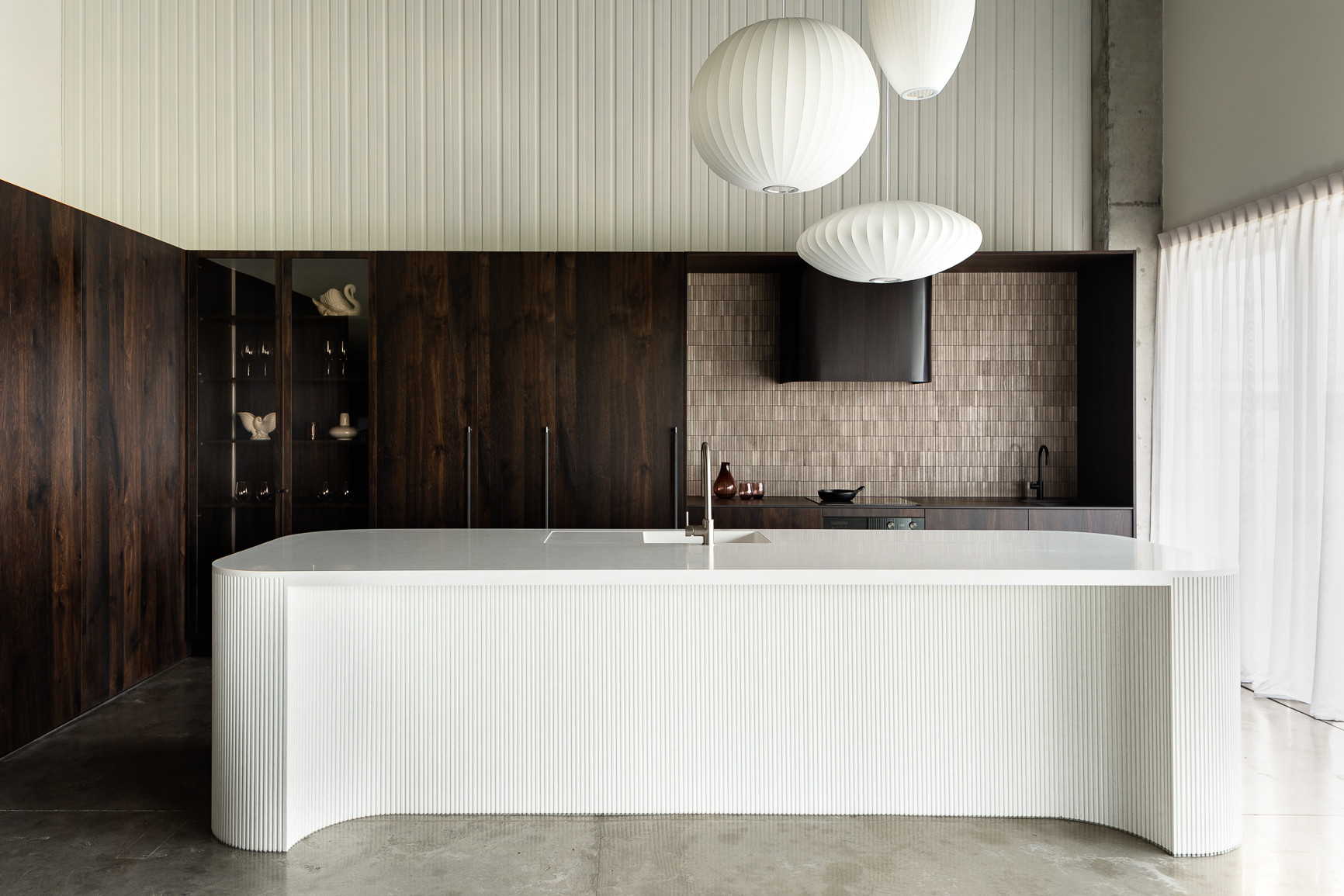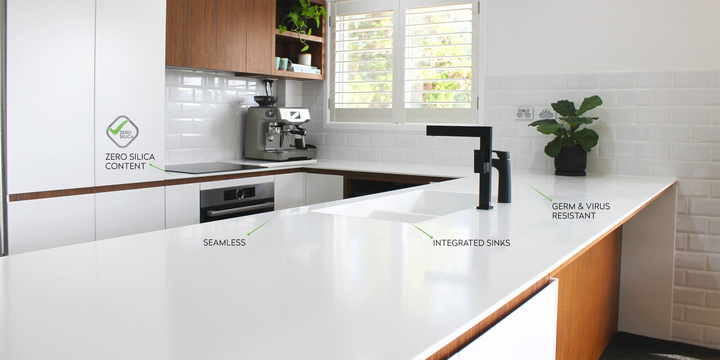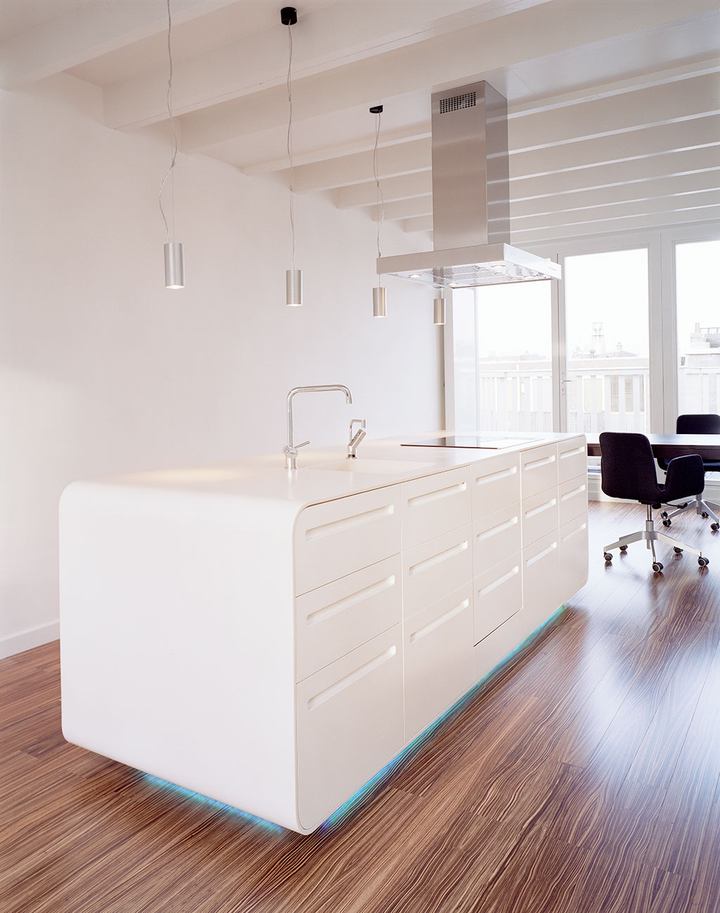7 Essential Insights About Corian Benchtops

Author: Kevin Sorby - Article Published: October 20, 2024
Corian kitchen benchtops have become a popular choice for homeowners seeking a balance of style, durability, and versatility in their kitchens. As one of the most recognizable solid-surface materials, Corian stands out for its seamless look and broad range of design options.
But what exactly makes Corian benchtops so special? And are they worth the investment? In this article, we dive deep into the frequently asked questions about Corian benchtops, providing you with critical insights to help make an informed decision.
1. What is a Corian Benchtop Made Of?
Corian is a brand of solid surface material created by DuPont, consisting of a blend of natural minerals and acrylic polymer. This combination results in a non-porous, stain-resistant, and highly durable material that has been used in homes and commercial spaces for over 50 years.
Key Features
- Seamless appearance - no visible joints or seams, providing a sleek, uninterrupted look.
- Durability - resistant to impact, heat, and moisture, making it an ideal material for busy kitchens.
- Low maintenance - Corian requires minimal upkeep, as its non-porous surface prevents bacteria and mould growth.
- Zero silica - Corian Solid Surface combines natural minerals with acrylic resin. Since it contains no silica, fabricators and installers face no risk of silica exposure when working with this material.
2. What Are the Benefits of Corian Benchtops?
Corian benchtops offer numerous advantages that make them a favourite among kitchen designers and homeowners. Here are some top benefits:
- Customizability - available in various colours and patterns, Corian can be cut, shaped, and moulded to fit any design preference.
- Repairability - unlike other surfaces, Corian is renewable and repairable, meaning benchtops can be restored to their original appearance if damaged. Minor scratches can be easily sanded out.
- Hygienic Surface - Its seamless design and non-porous nature make it highly resistant to bacteria and easy to clean, essential for kitchen use. Corian countertops will never permanently stain.
- Versatility - Corian can be used for benchtops, sinks, backsplashes, and even custom design features, offering unmatched flexibility.
- UV Stable - A Corian benchtop will not degrade or yellow due to sunlight streaming through your kitchen window or skylight.
3. How Does Corian Compare to Other Materials Like Granite or Quartz?
Corian is often compared to natural stones like granite and engineered materials like quartz. Here's how it stacks up:
- Durability - while granite is harder, Corian is less prone to cracking and is easier to repair.
- Appearance - Corian offers a more modern, seamless look compared to the natural veining of granite and quartz.
- Maintenance - granite requires sealing to prevent staining, while Corian does not, making it lower maintenance.
| Material | Durability | Appearance | Maintenance |
| Corian | Impact resistant, easily repairable | Seamless, customisable | No sealing, easy to clean |
| Granite | Very durable but brittle | Natural, varied veining | Requires regular sealing |
| Quartz | Durable and non-porous | Natural, but with visible seams | Low maintenance, no sealing |
4. Is Corian Heat Resistant?
Corian is heat-resistant to an extent but should be protected from direct heat. While it can handle moderate heat levels (up to 100°C or 212°F), placing hot pots or pans directly on the surface can cause damage.
It's advisable to use trivets or heat pads to protect your benchtop from scorching or warping.
5. What About A Corian Sink?
Corian sinks can be integrated directly into Corian countertops, creating a smooth, joint-free appearance that enhances the overall look of your kitchen.
The most common comparison is between Corian and stainless steel sinks. Each material has its advantages, but Corian offers a unique set of benefits:
- Noise Control - Corian sinks are quieter than stainless steel, which can be a significant advantage in open-plan kitchens.
- Aesthetic Appeal - Corian sinks offer a more integrated and seamless look when paired with Corian countertops, while stainless steel creates a contrast that may not fit every design.
6. Can Corian Be Used Outdoors?
UV stable, robust, durable, waterproof, UV resistant, Corian can be fully exposed outdoors.
7. How to Care for and Maintain Corian Benchtops
One of the biggest advantages of Corian is its low-maintenance nature. To keep your Corian benchtop looking pristine, follow these simple care tips:
- Regular Cleaning - using a microfibre cloth, wipe down the surface with a mild soap and water solution to remove spills and stains.
- Avoid Harsh Chemicals - steer clear of using abrasive cleaners, which can dull the surface over time.
- Prevent Scratches - use cutting boards for food preparation and avoid dragging heavy objects across the surface.
Corian surfaces can also be easily repaired if scratches or minor damages occur. Simply sanding the area will restore its original finish, ensuring your benchtop looks like new for years to come.
Conclusion
Corian benchtops are an excellent investment for homeowners seeking a modern, seamless, and durable kitchen surface. With its wide range of design options, easy maintenance, and repairability, Corian offers flexibility and functionality that few other materials can match. By understanding its benefits and limitations, you can confidently choose Corian as a stylish and practical addition to your kitchen.


